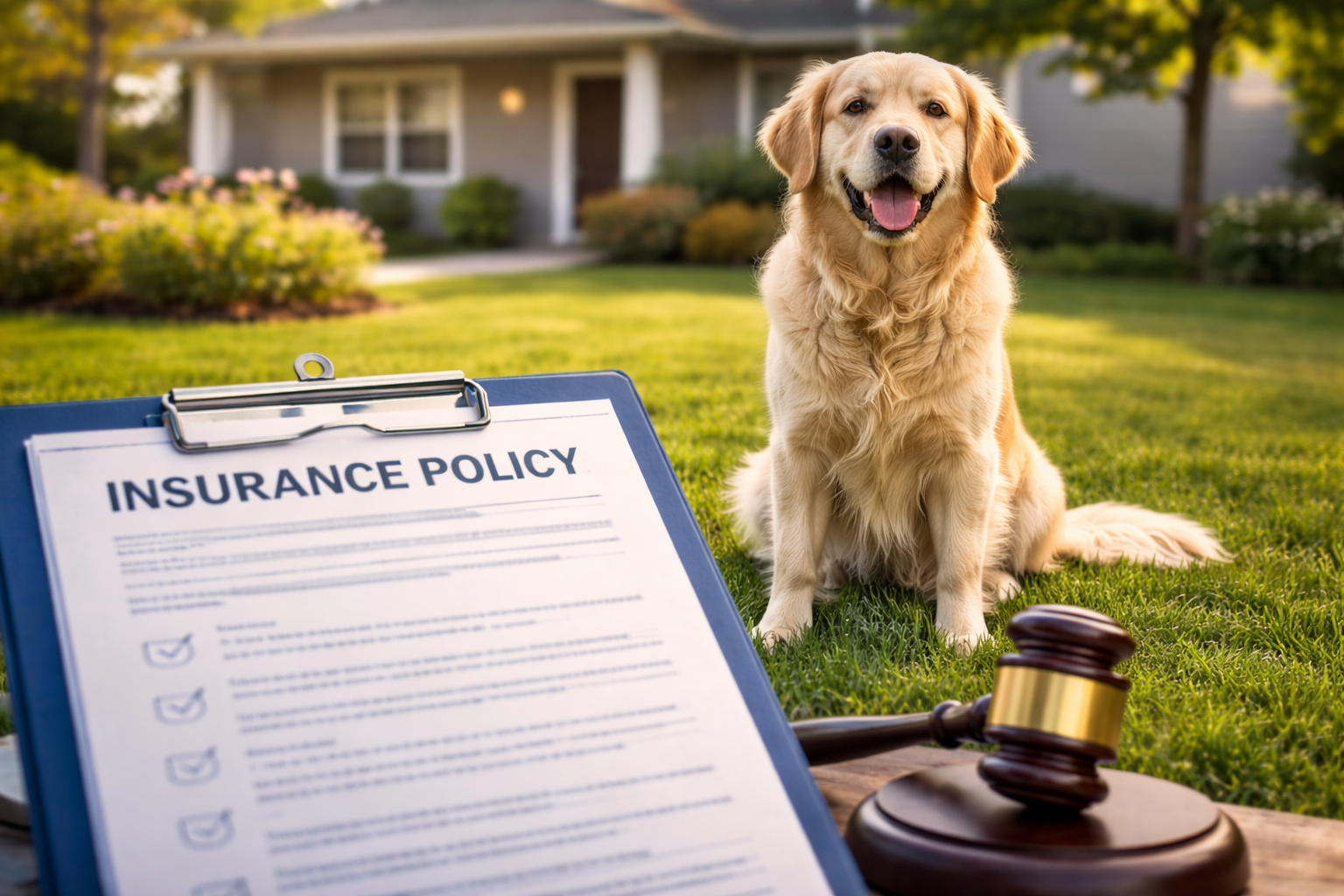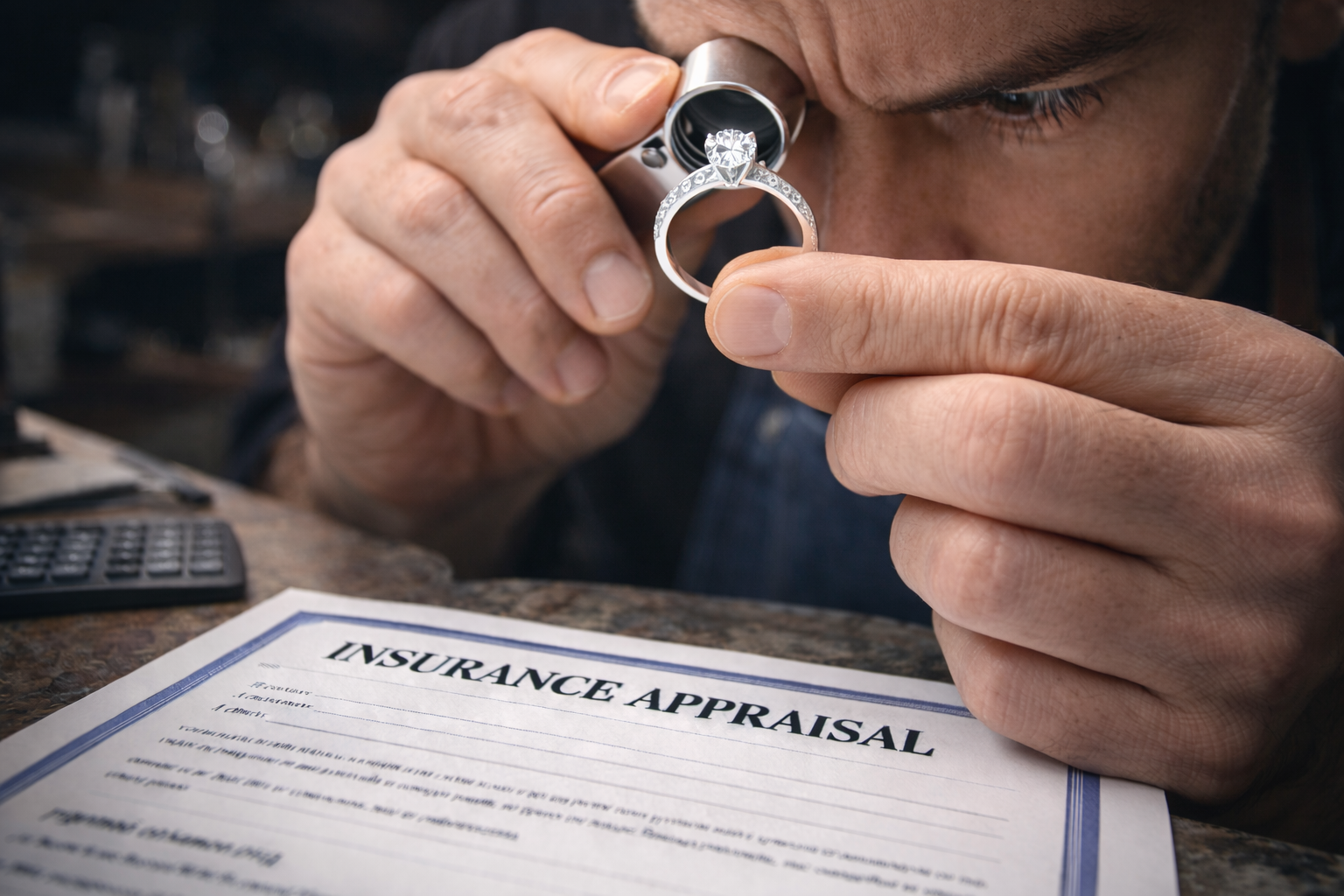Are Your Pets Covered? Understanding Pet Liability and Home Insurance
Adams Kotel
Published on

For millions of homeowners, pets are cherished members of the family. They bring joy, companionship, and a whole lot of love into our homes. But as any pet owner knows, they can also be unpredictable. A normally gentle dog can bite if it's scared, a playful cat can scratch a visiting child, or an excited puppy can trip a guest, causing an injury.
When these unfortunate incidents occur, they can lead to more than just a trip to the doctor's office; they can result in a significant lawsuit. According to the Insurance Information Institute, liability claims related to dog bites and other pet-related injuries are a major source of loss for the insurance industry, costing homeowners and their insurers over $1 billion annually. This raises a critical and often overlooked question for pet owners: what happens if my pet injures someone? Am I covered?
The answer, for the most part, lies within your homeowners insurance policy. The personal liability portion of your policy is designed to protect you from lawsuits for bodily injury or property damage that you or a member of your household (including your pets) cause to other people. However, the details of this coverage can be complex and are fraught with exceptions and limitations that every pet owner needs to understand.
This guide will delve into how homeowners insurance addresses pet liability, what is typically covered, the crucial exclusions to be aware of, and how you can ensure you have the right protection in place for your four-legged family members.
The Foundation: Personal Liability Coverage
Personal liability coverage is a standard component of every homeowners, renters, and condo insurance policy. It's designed to cover the costs if you are found legally responsible for an accident that injures another person or damages their property. This coverage is broad and is not limited to incidents that happen on your property.
When it comes to pets, this liability coverage is your first line of defense. If your dog bites a guest in your home, nips a child at the park, or gets loose and causes a cyclist to crash, your homeowners liability will typically step in to cover the costs, up to your policy limit. This can include:
- Medical Bills: The injured person's hospital stays, surgeries, and doctor visits.
- Lost Wages: If the injury prevents the person from working.
- Legal Fees: The cost to hire a lawyer to defend you in court.
- Pain and Suffering: The settlement or judgment awarded by a court.
Standard liability limits typically start at $100,000, but most financial experts recommend carrying at least $300,000 to $500,000. Given that the average cost of a dog bite claim is now over $64,000, and severe incidents can easily result in six- or seven-figure lawsuits, having robust liability coverage is essential. For even greater protection, a personal umbrella policy can add an extra $1 million or more in liability coverage on top of your homeowners policy for a relatively low cost.
The Big "But": Exclusions and Limitations
While a standard policy does provide a base level of pet liability coverage, it is by no means absolute. Insurance companies are acutely aware of the risk associated with pets, and they have implemented several ways to limit their exposure.
1. Breed-Specific Exclusions
This is the most common and controversial limitation. Many insurance companies maintain a list of dog breeds they consider to be "high-risk" or "dangerous." If you own a dog on this list, the company may:
- Exclude the dog from liability coverage entirely: This means if your dog bites someone, your homeowners policy will not provide any coverage at all. You would be entirely on your own to pay for legal defense and any settlement.
- Charge a significantly higher premium.
- Refuse to sell you a homeowners policy altogether.
These "blacklist" breeds commonly include Pit Bulls, Rottweilers, Doberman Pinschers, German Shepherds, Akitas, and Chow Chows, among others. It's important to note that these exclusions are based on breed-wide statistics and perceptions of risk, not on the behavior of your individual dog. Even if your dog is perfectly sweet and has no history of aggression, its breed alone can be grounds for exclusion.
2. A History of Aggression
Even if your dog's breed is not on an excluded list, your policy will likely not cover you if the dog has a known history of biting or aggression. When you apply for a policy, you will be asked if you own any pets and if they have ever bitten anyone. If you fail to disclose a past incident and the dog bites someone again, the insurer has grounds to deny the claim and even void your policy for misrepresentation.
3. "Your Property" Exclusions
Liability insurance is for damage you cause to other people. It does not cover damage your pet causes to your own house or your own property. If your puppy chews up your expensive sofa or your cat shreds your curtains, you cannot file a claim for that damage.
What About Pet Health Insurance?
It is crucial to distinguish between pet liability coverage (which is part of your homeowners policy) and a standalone pet health insurance policy.
- Homeowners Insurance covers the damage your pet does to other people.
- Pet Health Insurance covers the cost of your pet's own veterinary care if they get sick or injured.
These are two completely separate products that address different risks. Pet health insurance can be a valuable tool for managing the high cost of vet bills, but it will not help you if your dog bites the mailman.
How to Ensure You Are Properly Covered
As a responsible pet owner, you must take proactive steps to manage your liability risk.
- Be Honest with Your Insurer: Always disclose that you own a pet, including its breed, when applying for or renewing your homeowners insurance. Failing to do so can lead to a claim being denied.
- Ask About Exclusions: Have a direct conversation with your insurance agent. Ask, "Does my policy have any animal-related exclusions? Are there any specific dog breed exclusions?" Get the answer in writing if possible.
- Shop Around: Not all insurance companies have the same breed exclusion list. If your current insurer refuses to cover your dog, don't give up. Another company may be willing to offer you a policy. Some specialty insurers even focus on providing coverage for "dangerous" breeds.
- Increase Your Liability Limits: The minimum liability coverage is rarely enough. Increase your homeowners liability to the highest available limit, and strongly consider purchasing a personal umbrella policy.
- Prioritize Training and Safety: The best way to avoid a liability claim is to prevent an incident from happening in the first place. Invest in professional obedience training for your dog. Spay or neuter your pet, as this can reduce aggressive tendencies. Always keep your dog on a leash in public and ensure your yard is securely fenced. Never leave a child unattended with any dog.
Conclusion:
Our pets are a source of immense joy, but they are also a source of significant liability. Your homeowners insurance policy provides a critical foundation of protection, but it is not a blank check. By understanding the potential for breed exclusions and other limitations, having an open dialogue with your insurer, and investing in robust liability and umbrella coverage, you can ensure that your financial security is as well-protected as your beloved pet.
Share this article
About the Author
Adams Kotel
Lead Insurance Analyst
Adams has over 15 years of experience in the insurance industry, specializing in personal line products. He is passionate about demystifying complex insurance topics and helping consumers make educated decisions.
Related Articles

Pet Liability Insurance & Breed Restrictions: A Homeowner’s Guide
Your dog is family to you, but to an insurance underwriter, they represent a massive financial risk. We decode pet liability, the dreaded "breed blacklist," and how to insure excluded animals.
Adams Kotel

Scheduled Personal Property Insurance: A Complete Guide
Your standard homeowners policy has hidden limits that will not cover your engagement ring, Rolex, or fine art if stolen. Learn how Scheduled Personal Property insurance protects your most valuable assets.
Adams Kotel